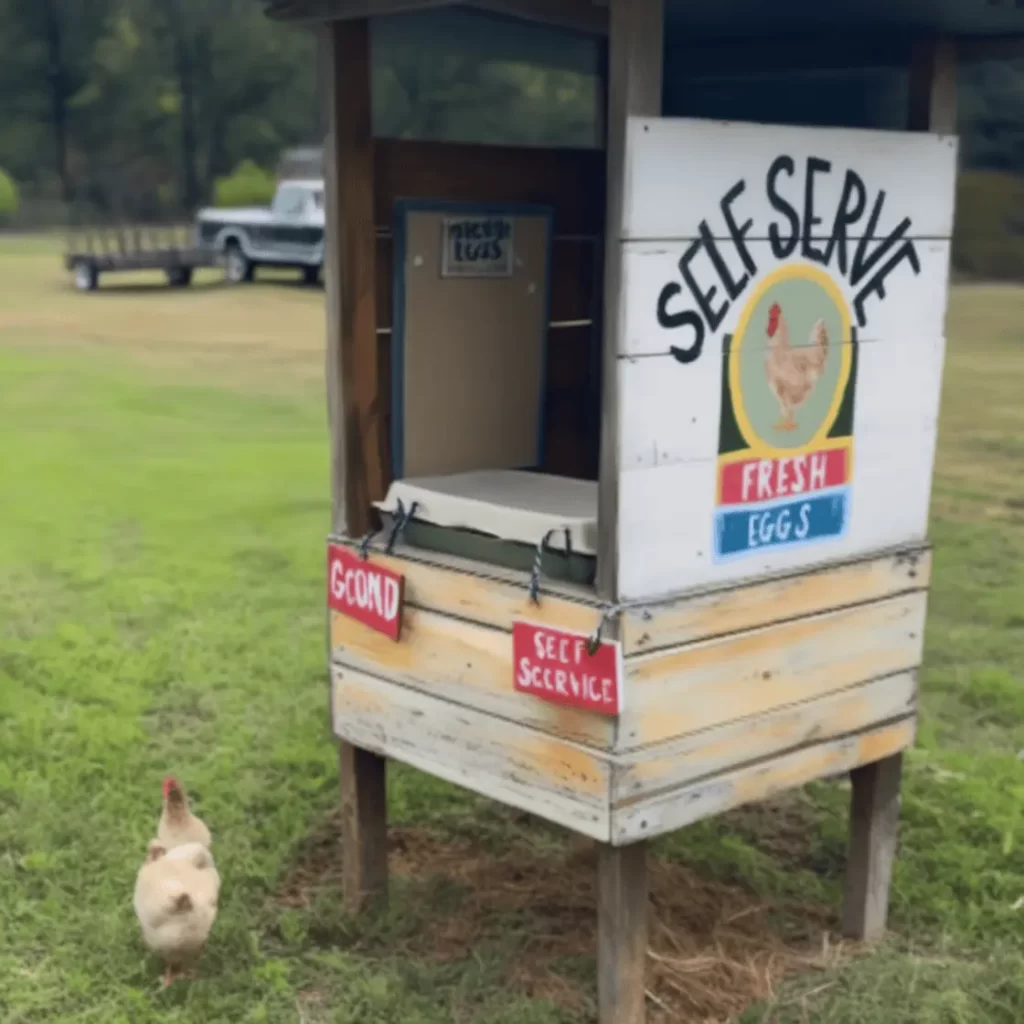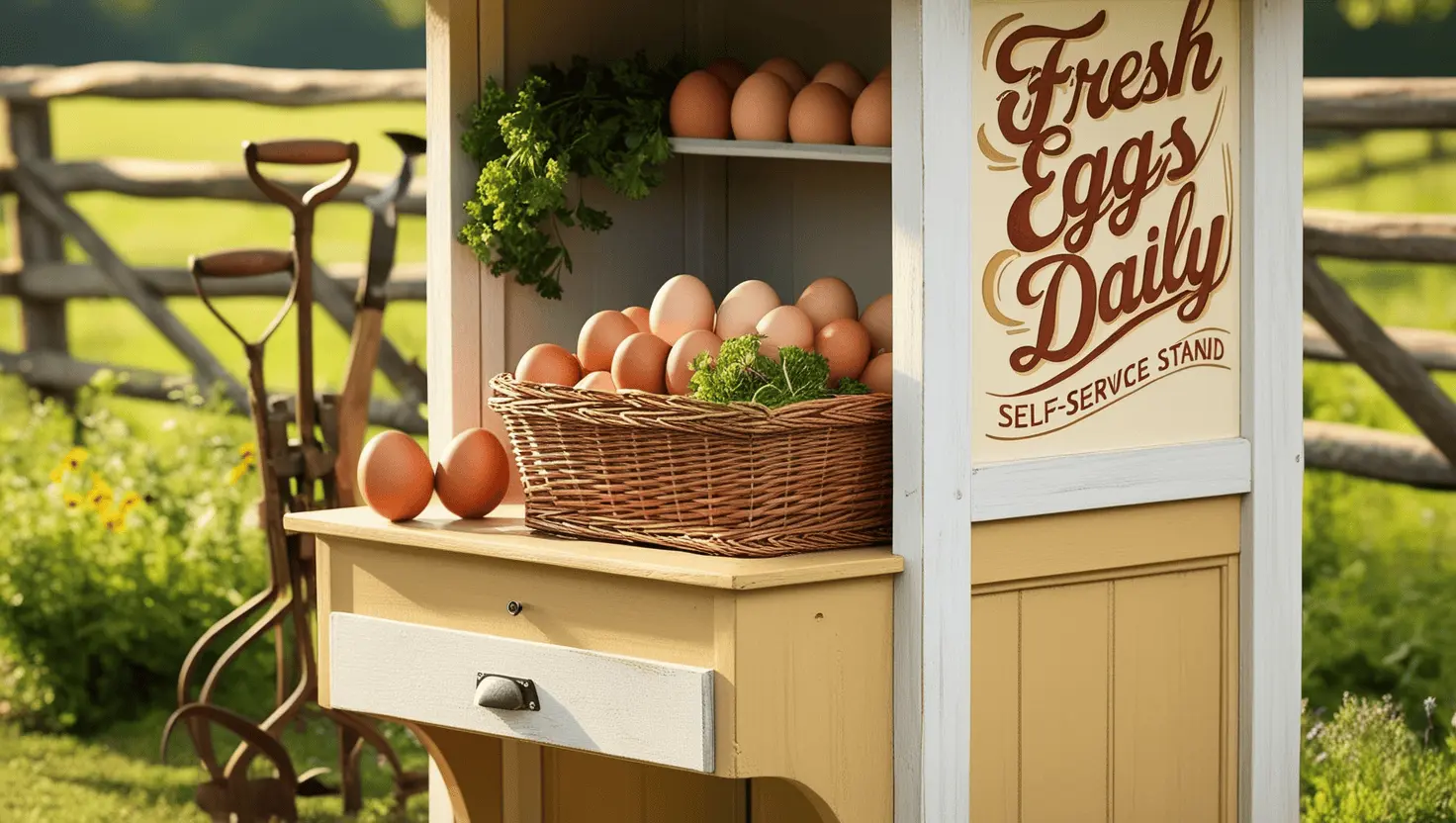In rural communities, self-service egg stands are an increasingly popular way for farmers to sell fresh eggs while building trust with their customers. These stands operate on the honor system, where customers take eggs and leave payment without the need for direct supervision. This time-honored system embodies the values of simplicity, honesty, and community, all while promoting sustainable living.
The Appeal of Farm-Fresh Eggs
One of the primary reasons customers flock to self-service egg stands is the guarantee of fresh, free-range eggs. Unlike store-bought eggs, which may sit on shelves for weeks, eggs from these stands are often collected the same day. Freshness is key for quality, and many homestead enthusiasts and foodies know the value of a fresh, free-range egg in terms of both taste and nutrition.
Farmers pride themselves on the care and ethical treatment of their hens, often allowing them to roam freely around the farm. This creates a sustainable and humane farming practice that aligns with the values of many consumers who prioritize organic and eco-friendly food choices.
How Self-Service Egg Stands Work

The process is refreshingly simple. The stand is set up in a visible location, often in a farm’s front yard or along a country road. Customers stop by, choose their eggs, and leave the payment in a box or wallet. A sign typically instructs visitors to “Pay Here,” and many stands also encourage customers to return their empty egg cartons for reuse, further promoting an eco-friendly approach.
the stand displays a “Sold Out” sign, indicating the popularity of the fresh eggs. This not only suggests the trust customers have in the system but also reflects the demand for local, fresh produce. With no one manning the stand, the honor system is crucial, and it is supported by the rural sense of trust that exists between neighbors and visitors.
Why Customers Love the Honor System
One of the defining features of these stands is the honor system. In an age where everything is digital and transactions are often impersonal, the idea that you can take a product and pay based on trust is deeply nostalgic. It reinforces community bonds and makes people feel like part of something bigger—whether they are locals or tourists passing through.
In some cases, customers will leave personal notes with their payments, expressing gratitude for the fresh eggs or appreciation for the simple but meaningful experience. highlights a family from Alabama, likely tourists, who left behind a note after purchasing eggs while staying in the area. Such interactions build connections between the farmers and their customers, creating a loyal base of return buyers.
Maintaining a Healthy Flock: The Importance of New Chicks
Another important aspect of running a successful self-service egg stand is maintaining the health and productivity of the flock. the farmer is looking to introduce new chicks to the farm to ensure a steady supply of eggs. Older hens eventually slow down in production, and adding new layers helps ensure that customers can continue to enjoy fresh eggs throughout the year.
The farmer invites suggestions for hatcheries from followers, highlighting the importance of engaging with the community and staying connected to the best local resources. Regularly bringing in new chicks is essential for keeping the operation sustainable and profitable.
The Role of Chickens in the Farm Experience
Chickens are the stars of the show on any homestead. introduces Steve, the farm’s beloved “Employee of the Week,” a chicken known for his quirky personality. Such stories and characters help humanize the operation, adding humor and charm to the business. Customers appreciate knowing where their food comes from, and the chickens’ presence provides a tangible connection to the product they’re purchasing.
In rural areas where agriculture is a way of life, showcasing the animals and sharing their personalities strengthens the bond between farm and community. People are more likely to support a farm when they feel connected to its operation, and chickens like Steve are integral to creating that relationship.
Sustainability and Community Engagement
These stands are not just about selling eggs—they’re about building a sustainable community. Farmers who operate self-service egg stands often emphasize the reduce, reuse, recycle philosophy. Encouraging customers to return their egg cartons is one small way that these farmers practice environmental stewardship.
Additionally, the close connection between farmers and their customers fosters a sense of responsibility and partnership. Many customers become repeat buyers, supporting the farm regularly, and contributing to the local economy.
Challenges and Rewards of Self-Service Egg Stands
While the charm of self-service egg stands is undeniable, they are not without challenges. Relying on the honor system can be risky. There’s always the possibility that someone might take eggs without paying, or fail to return cartons. However, many farmers believe that the benefits far outweigh the risks. The majority of customers respect the system and appreciate the simplicity and trust that underpin it.
For farmers, this system reduces labor costs and provides flexibility, as they don’t need to be present to sell their goods. At the same time, it helps foster a sense of community engagement, as customers enjoy participating in a simple, honest transaction.
Conclusion: The Enduring Appeal of Self-Service Egg Stands
The self-service egg stand represents more than just a place to buy fresh eggs. It’s a symbol of trust, community, and sustainability. As people continue to seek out local, organic food options, these stands offer a glimpse into rural life and the values that come with it. For farmers, it’s an opportunity to build relationships with customers, sustain their operations, and promote ethical farming practices.
Whether you’re a local or a tourist driving through, stopping by a self-service egg stand is an experience that connects you to the land and the people who work it. It’s a return to simpler times, where trust is the foundation of every transaction and where the quality of the product speaks for itself.

